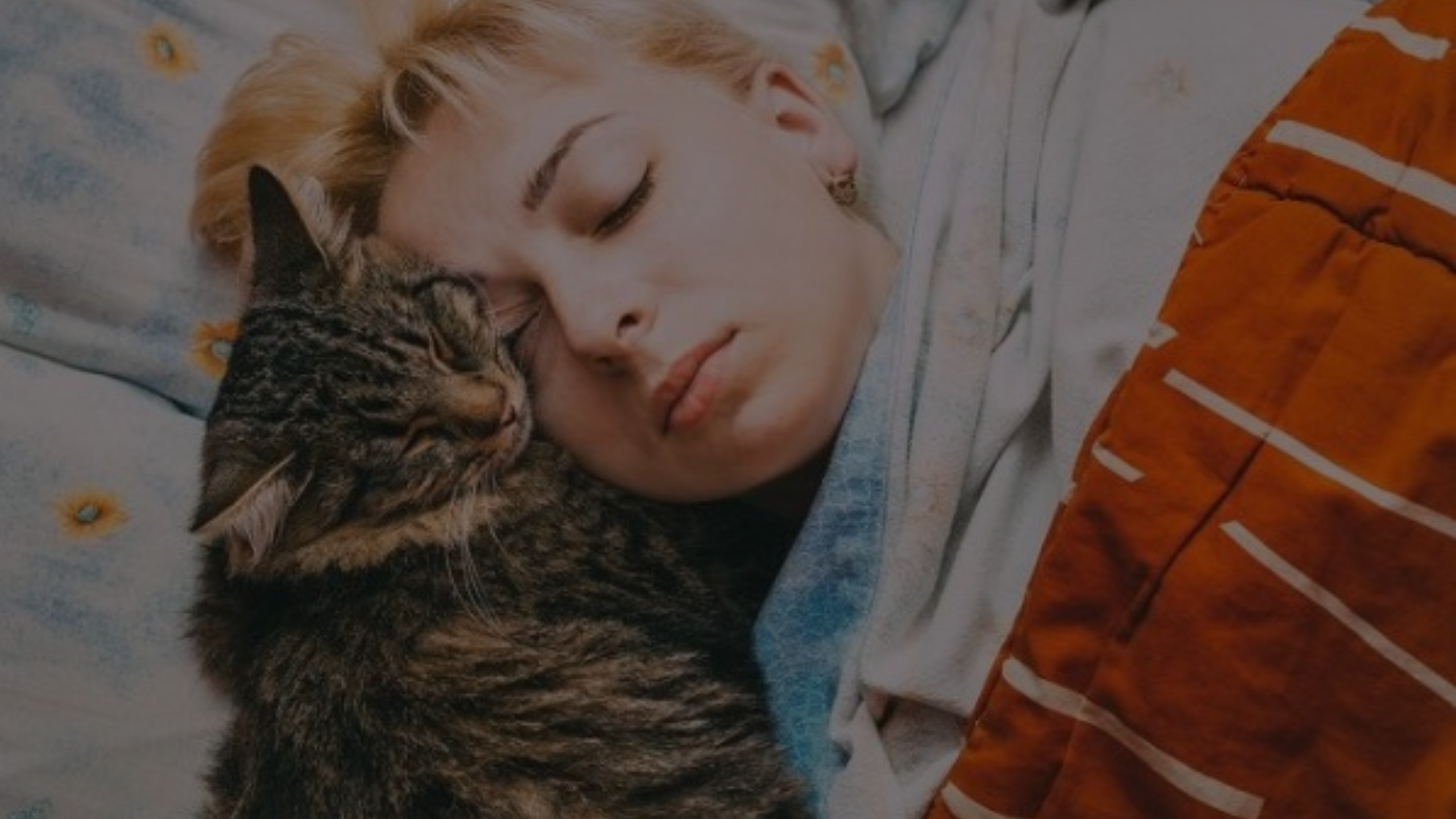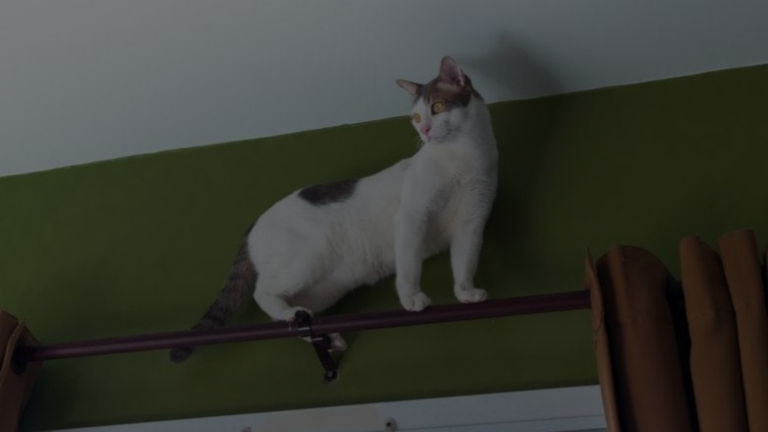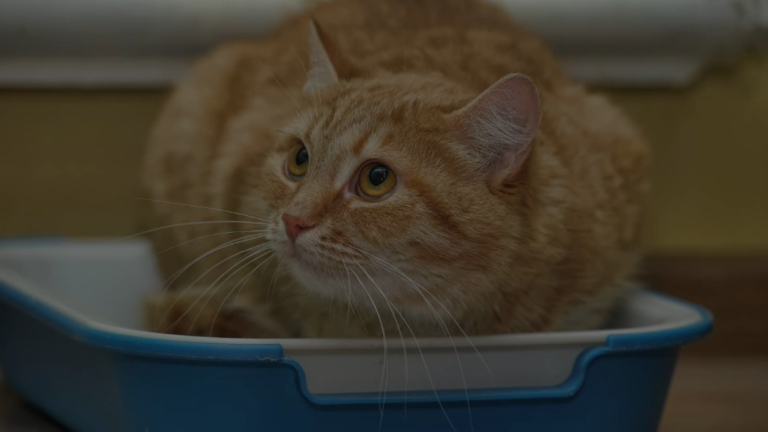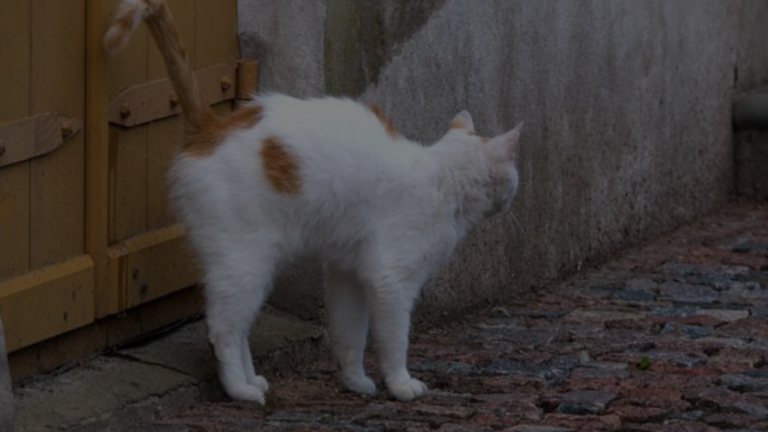For many cat owners, waking up to a furry face nestled on their pillow is a familiar experience. While some find it adorable, others might wonder if it’s hygienic or why their feline companions choose this peculiar sleep spot.
Fear not, cat lovers! Delving into the reasons behind why does my cat sleep on my pillow, can offer fascinating insights into their behavior and deepen your bond with your furry friend. So, settle in and prepare to purr along as we explore the various motivations behind this endearing nighttime ritual.
Why Does My Cat Sleep on My Pillow?
Cats are renowned for their love of warmth, and your head, specifically, radiates heat like a tiny sun. As humans lose heat through their heads, the pillow naturally becomes a warm haven for your feline friend. This is especially true for senior cats or those with thinner fur, who require extra warmth to maintain their body temperature.
Moreover, pillows are often soft and plush, providing a comfortable surface for your cat to sink into. The combination of warmth and comfort makes your pillow an irresistible sleep haven, especially during colder months.
Finding Protection in Your Presence
Cats, despite their independent nature, are instinctively cautious creatures. When they sleep on your pillow, they feel safe and secure in your proximity. Your scent is familiar and comforting, acting as a soothing presence that lulls them into a peaceful slumber.
Additionally, being near you allows your cat to keep an eye on their surroundings. From their vantage point on your pillow, they can easily observe their environment and react if necessary, providing them with a sense of control and security.
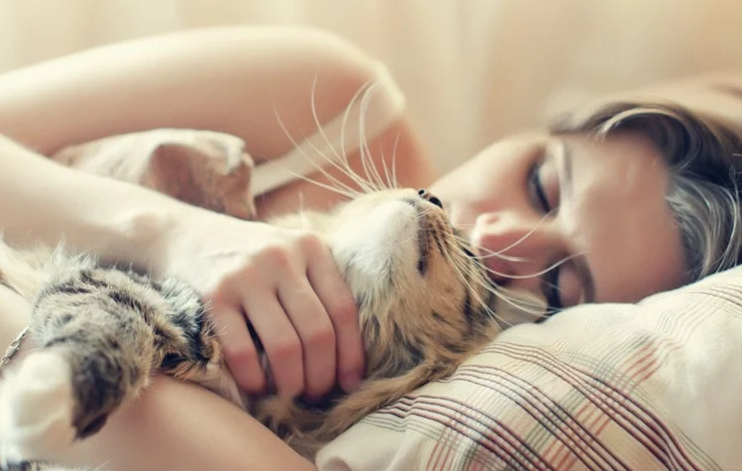
Showering You with Love
Beyond warmth and security, your cat’s pillow preference could be a subtle way of expressing their affection. When they curl up beside you, it’s their way of showing they trust and adore you. The act of kneading the pillow or purring softly are additional signs of their contentment and love.
Sharing your sleep space is a sign of your cat’s vulnerability and trust. They choose to be close to you when they’re at their most relaxed, showcasing their deep bond with their human companion.
Territorial Instincts at Play
Cats are territorial creatures, and while they might not overtly claim your entire bed, they might subtly mark their presence on your pillow. By sleeping there, they leave their scent, which serves as a comforting reminder of their domain and reinforces their sense of security.
This behavior becomes more pronounced in multi-cat households or if your cat feels insecure. Sharing your pillow allows them to feel more at ease in their environment and reduces their anxiety.
Other Possible Reasons for Pillow Prowess
While the aforementioned reasons are common, other factors might influence your cat’s pillow preference:
- Medical conditions: Cats with arthritis or other ailments might seek heat and comfort on your pillow. If you notice a sudden change in their sleep habits, consult your veterinarian.

Image Credit: LoveYourCat.com - Boredom or loneliness: If your cat lacks stimulation or feels neglected, they might seek your attention by sleeping on your pillow. Ensure they have enough playtime and interaction to alleviate boredom.
- Age-related changes: Older cats often become more affectionate and might seek closer companionship, leading them to your pillow. Be patient and provide them with additional cuddles and care.
Should You Let Your Cat Sleep on Your Pillow?
The decision ultimately depends on your comfort level and preferences. If you’re concerned about hygiene, ensure your cat receives regular vet checkups, deworming, and flea/tick treatments. You can also invest in washable pillowcases or designate a specific pillow for your cat.
However, if you don’t mind sharing your pillow space and enjoying the warmth and cuddles, allowing your cat to sleep there can deepen your bond and provide them with comfort and security.
Respect Your Cat’s Individuality
Every cat has unique preferences and personalities. What motivates one to sleep on your pillow might not apply to another. Observe your cat’s behavior, pay attention to their cues, and create a sleeping arrangement that caters to their individual needs and your comfort level.

Resources & References
- American Association of Feline Practitioners: https://catvets.com/
- Cornell University College of Veterinary Medicine: https://www.vet.cornell.edu/departments/cornell-feline-health-center/health-information/feline-health-topics
- International Cat Care: https://icatcare.org/
- National Research Council of the National Academies: https://nap.nationalacademies.org/
FAQs About Your Cat Sleeping on Your Pillow
Is it hygienic to let my cat sleep on my pillow?
While hygiene concerns are understandable, letting your cat sleep on your pillow is a personal decision. Ensuring regular vet checkups, deworming, and flea/tick treatments for your cat minimizes the risk. You can also invest in washable pillowcases or designate a specific pillow for them.
Does my cat sleep on my pillow because they love me?
Absolutely! Sharing your sleep space signifies trust and affection. Kneading the pillow, purring, and snuggling close are additional signs of feline love and contentment.
Is it bad if I push my cat off my pillow at night?
It depends on your cat’s personality and how gently you do it. Some cats might be okay with it, while others might feel rejected. Observe your cat’s reaction and offer alternative sleeping spots with similar warmth and comfort.
My cat only sleeps on my head! Why?
Your head radiates the most heat, making it the warmest spot on the pillow. Additionally, your scent might be particularly calming for them. Consider it a purrfect compliment!
My cat started sleeping on my pillow recently. Should I be worried?
Not necessarily. It could simply be a new preference or a response to changes in their environment or routine. However, if their sleep habits change drastically or are accompanied by other behavioral shifts, consult your veterinarian to rule out any underlying health issues.
How can I encourage my cat to sleep somewhere else?
Provide them with comfortable, enticing alternatives in quiet locations. Ensure their designated beds are warm, soft, and offer similar comfort to your pillow. Pheromone sprays or calming diffusers can also make their new sleep spots more appealing.

